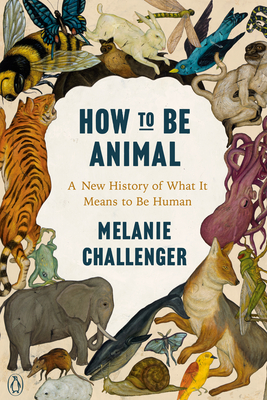What do you think?
Rate this book


272 pages, Paperback
First published June 25, 2020
All that we do, we do as animals. But we justify it as humans. The way that we've structured the world is little more than the intuition of an animal whose greatest interests lie with its own kind. But we almost never confess to this. We tell ourselves instead that we have a soul. Or, if we don't want to call it a soul, we say there is a person inside us that is more important than the body from which it's made. In this way, the bodies of other animals mean nothing. They are bits of machinery, spare parts. We may use them as we wish. (52)In How to Be Animal, Melanie Challenger nicely outlines the problems created by our belief in personhood, soulfulness, or our "uniquely unique" status amongst animals.